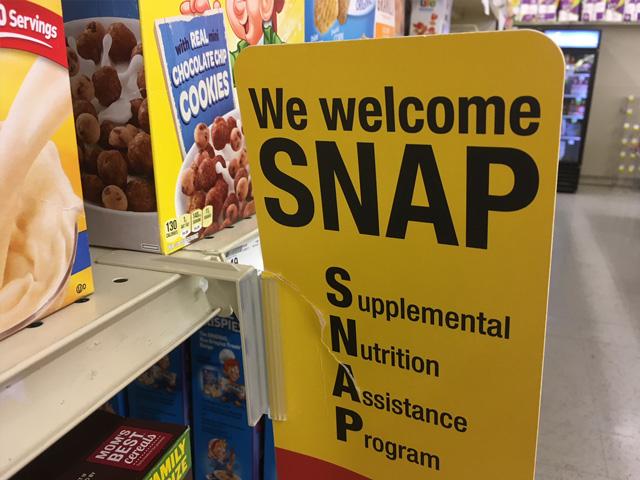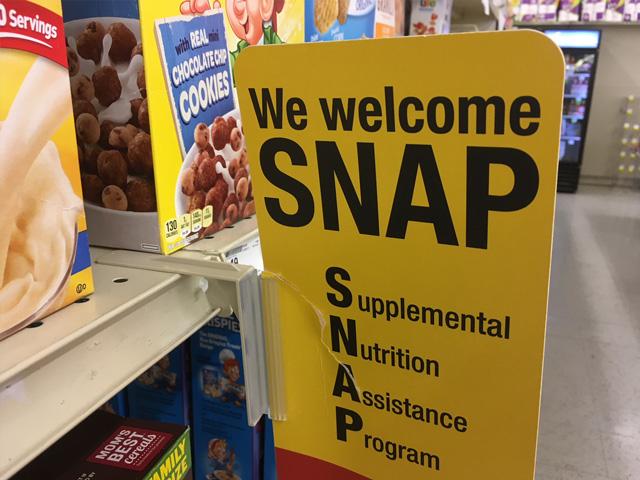Ag Policy Blog
Conflict Between House Ag Members Over SNAP Dominates Vilsack Hearing
WASHINGTON (DTN) -- Agriculture Secretary Tom Vilsack testified before the House Agriculture Committee Tuesday, but the hearing was dominated not by farm policy but by a conflict between committee members over work requirements in the Supplemental Nutrition Assistance Program (SNAP).
The conflict began when Rep. David Scott, D-Ga., in his opening statement, said he was "disturbed" by Republican farm bill proposals that would impose stricter work requirements on the SNAP beneficiaries known as Able-Bodied Adults Without Dependents.
"More requirements will only leave vulnerable populations – like veterans – hungry," Scott said. "SNAP already has strict work requirements, and it is a very effective work support program. The House Democrats will stand united to defeat any proposals to weaken SNAP, as we have in previous farm bill years."
Scott made the statement as the Center on Budget and Policy Priorities released a study that said the bill introduced by Rep. Dusty Johnson, R-S.D., and 20 other Republicans "would dramatically expand SNAP's already harsh work requirements, putting more than 10 million people -- including millions of children-- in states nationwide at risk of losing at least some of their food benefits."
Johnson called Scott's comments "unfortunate" and pointed out that work requirements were put in place in 1996 when Congress passed a farm bill and a welfare reform bill, both signed by then-President Bill Clinton, a Democrat.
The law included flexibility to the states to get waivers from the work requirements to deal with certain economic conditions, and critics have said the states have taken advantage of that provision.
Johnson thanked Vilsack for several actions that USDA has taken that benefit South Dakota, but used the rest of his five minutes of allotted time to respond to critics of his bill rather than ask Vilsack questions.
"Work is not punishment, it is opportunity," Johnson said.
Clinton signed the bill that included work requirements, but he also said in a signing statement, "It fails to provide sufficient contingency funding for states that experience a serious economic downturn, and it fails to provide food stamp support to childless adults who want to work, but cannot find a job or are not given the opportunity to participate in a work program."
Separately Tuesday, House Majority Leader Mike McCarthy, R-Calif., sent a letter to President Joe Biden calling for negotiations on the debt ceiling and budget. Among the items McCarthy detailed were "strengthening work requirements for people without dependents who receive federal assistance."
P[L1] D[0x0] M[300x250] OOP[F] ADUNIT[] T[]
Rep. Sharice Davids, D-Kan., said she was only 16 in 1996 but that there were decisions made in 1996 with which she disagreed.
Rep. Scott DesJarlais, R-Tenn., asked Vilsack to provide details on how many people illegally in the country are receiving SNAP benefits. Vilsack said that people in the country illegally are not eligible but people who have received asylum are not in the country illegally and therefore are eligible.
DesJarlais said he has been trying to find out how many noncitizens get SNAP benefits, but has not been able to get that from Vilsack or anyone else. He expressed concern that people who enter the country and ask for asylum are given legal status and cell phones to allow them to find out when to show up for a court date, but then don't answer their phones.
Rep. Barry Moore, R-Ala., said he was concerned that "illegals" are not being tracked and suggested that there could be as many five million noncitizens on SNAP, a figure that Vilsack refuted.
Vilsack also said that making work requirements stricter would make it difficult for governors to manage their states in tough economic times.
Several Republicans said they were upset that 82% of the farm bill spending will go to nutrition programs.
Rep. Jim McGovern, D-Mass., thanked the Biden administration for sponsoring the White House Conference on Food, Nutrition and Health, and other Democrats thanked Vilsack for the administration's attitude toward nutrition programs.
CHINESE LAND ISSUE
Republicans also questioned Vilsack about the Agriculture Department's handling of foreign ownership of farmland. Vilsack said that USDA's knowledge of foreign ownership of farmland depends on self-reporting and that if Congress really wants to know how much farmland is foreign-owned, it would have to establish a registry that would require reporting from the nation's 3,000 counties on all deed changes.
Vilsack also noted that the 1978 Agriculture Foreign Investment Disclosure Act did not give Congress investigative powers to find out if the reporting is accurate.
Rep. Rick Crawford, R-Ark., questioned Vilsack about USDA's role on the Committee of Foreign Investment in the U.S. (CFIUS) because USDA is not a permanent member. Vilsack agreed being on the committee full-time would help educate other members of CFIUS about agricultural issues. Crawford then issued a press release citing that Vilsack expressed support for his legislation, the Promoting Agriculture Safeguards and Security Act (PASS) that "would ensure USDA is fully involved in reviewing our foreign adversaries' acquisition of American agricultural land and companies in response to Communist China's threats to America's food supply."
In his opening statement, House Agriculture Committee Chairman Glenn "GT" Thompson, R-Pa., said, "Unfortunately, this administration has consistently, and without hesitation, upended congressional consensus through a series of unilateral, executive decisions that will resonate for decades, at a time when both farm sector debt is skyrocketing, and the farm safety net is dwindling.
"Whether it be the expedited, shoddy update to the Thrifty Food Plan, or the multibillion-dollar climate smart pilot, rulemakings outside the scope of authority granted by Congress, or the demonization of certain industries, frankly, we are at a crossroads."
But Thompson added, "Despite my frustrations, Mr. Secretary, I know that our members, in partnership with you and your team at USDA and our counterparts in the Senate, have the capacity to work in concert."
Vilsack's office released fact sheets on SNAP, foreign ownership of farmland and the Waters of the United States rule.
Also see, "Amid an Array of Issues, Some Lawmakers have Disaster Aid Concerns,"
-House Agriculture Committee hearing with Agriculture Secretary Tom Vilsack (video) https://www.youtube.com/…
DTN Ag Policy Editor Chris Clayton contributed to this report.
Jerry Hagstrom can be reached at jhagstrom@nationaljournal.com
Follow him on Twitter @hagstromreport
(c) Copyright 2023 DTN, LLC. All rights reserved.






Comments
To comment, please Log In or Join our Community .